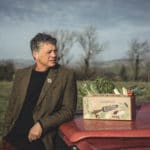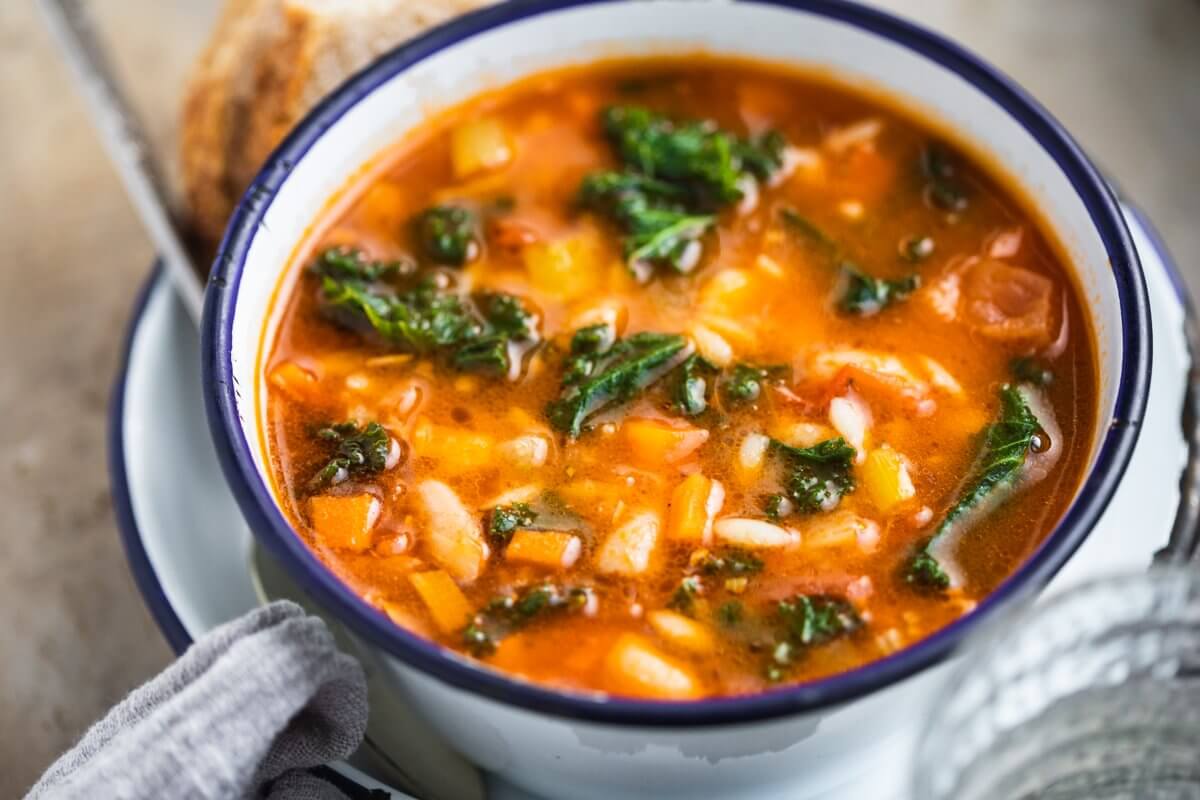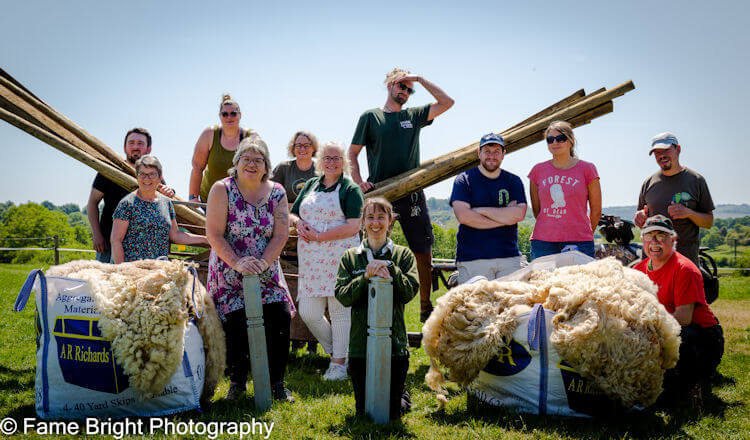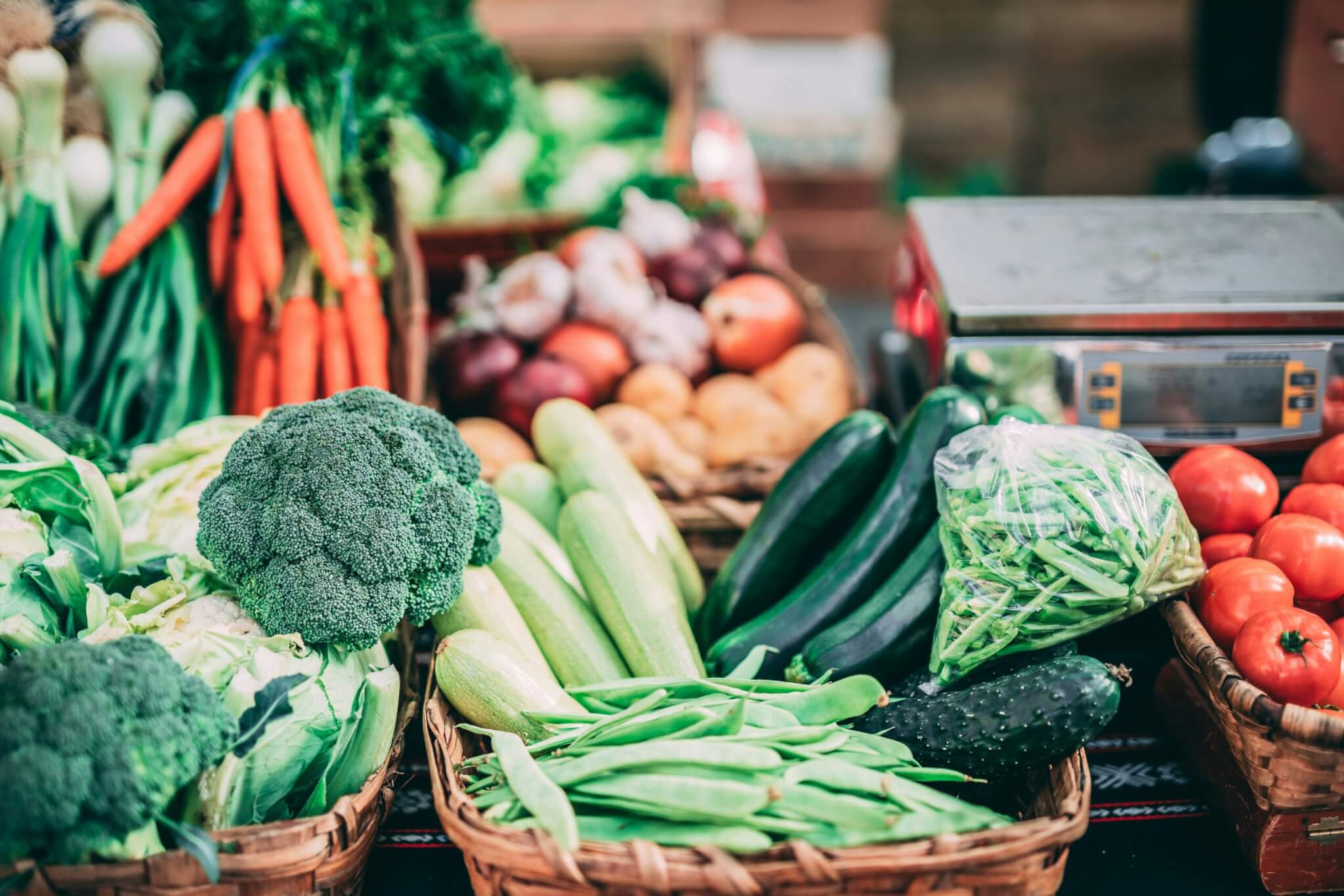The last of the house martins and swallows have left us, replaced by a flock of fieldfares who have elected to make us their winter home for the first time since my childhood – perhaps drawn by a bumper crop of hawthorn berries that have turned some hedges red as the leaves drop. The 20cm deluge of early September rain was followed by a sunny end to the month, allowing us to harvest squash and make a start on main crop potatoes in ideal conditions.
Given the drought suffered in the east, I feel almost embarrassed to say that this has been a wonderful year for most of our Devon growers. The bright and dry summer kept blight (dreaded by organic potato growers) at bay, with just enough rain to keep the crop going until the September rains allowed tubers to swell and finish well. Yields and the quality of potatoes, carrots, and beetroot are exceptional. Now we just need to sell them! With barns full to bursting and some great crops in the fields, if you felt inclined to recommend us to a friend this would be a great time to do so (for every friend who signs up, you’ll also get £15 to spend at Riverford via our Refer a Friend scheme).
This week also sees the last tomatoes cleared from our tunnels, quickly replaced by mustards, rocket, claytonia, escarole, and other crisp, nutritious leaves that will fill your salad bags over the winter. We’ve now finished our field grown lettuce; they would probably struggle on to the first frost but, with declining light, flavour and shelf life deteriorates. To fill the gap, we’ll rely on our farm in the French Vendée for the next three weeks, then our Spanish growers, to help see us through the winter. And for the bitter salad lovers among you, the next two months are the best for our Devon-grown radicchio, escarole, and endive family (relatives of the dandelion, which, if you like foraging, are also succulent now).
We are already picking purple sprouting broccoli, which feels wrong in October. A bit like vinyl, this once shunned late winter and spring vegetable has enjoyed a revival over the last 20 years, attracting the attention of plant breeders who have produced some great early varieties; it is now possible to harvest the crop (or something like it) almost year-round. Like the related cauliflower and calabrese broccoli, my enthusiasm has been revitalized by roasting rather than boiling it – simply break into florets, toss in olive oil, salt, and pepper and roast at about 200°c for 15 mins. The best.
Our News from the Farm posts come from Riverford. They are the digital versions of the printed letters which go out to customers, every week via Riverford’s veg boxes. Guy Singh-Watson’s weekly newsletters connect people to the farm with refreshingly honest accounts of the trials and tribulations of producing organic food, and the occasional rant about farming, ethical and business issues he feels strongly about.














0 Comments